C OLD BUT NEW THOUGHT
From free gift links to high-paying online affiliate offers, seemingly old yet new tricks are disguised under friendly language and increasingly sophisticated technology.
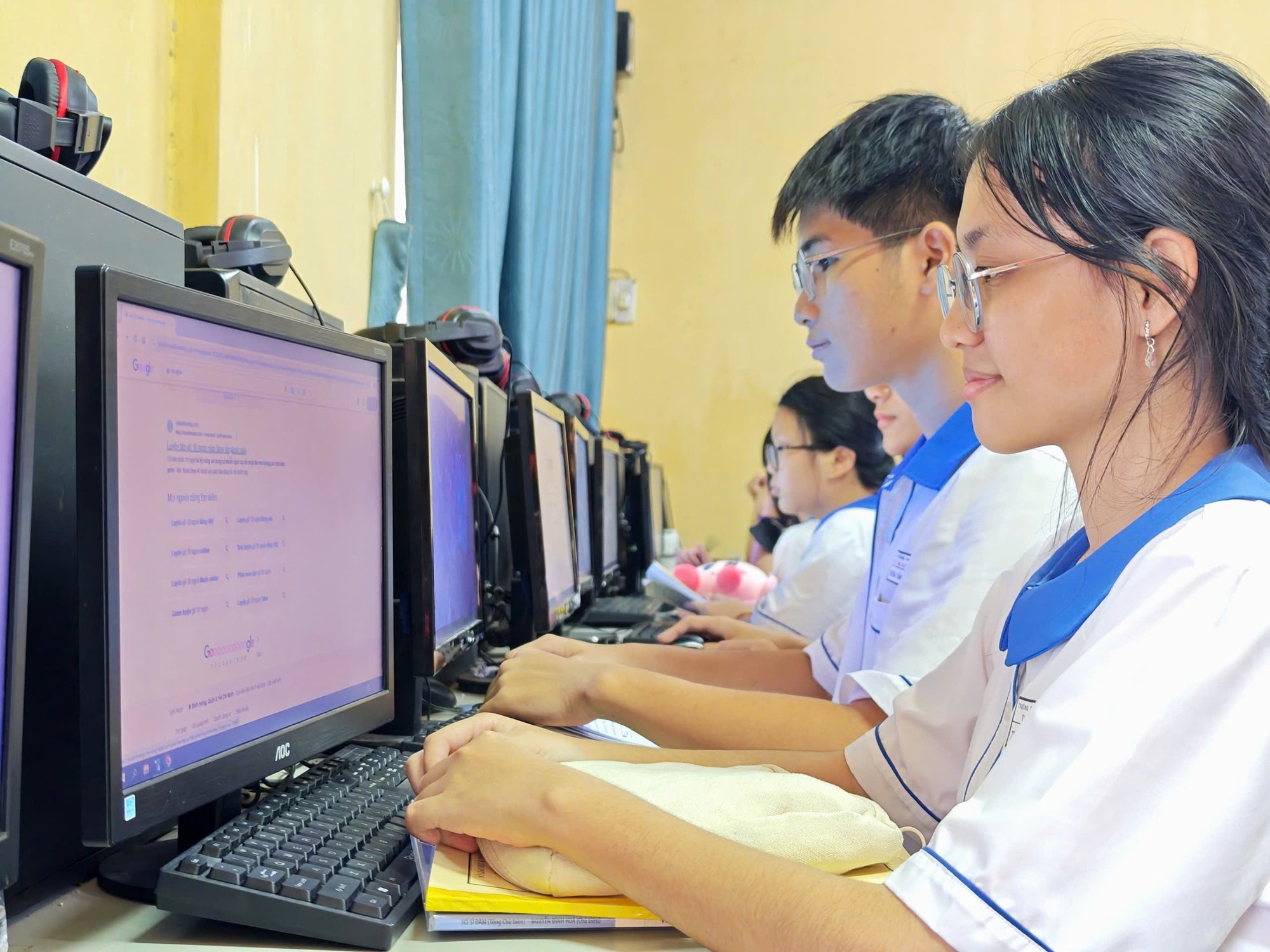
Schools need to consider digital safety education as part of life skills, such as teaching students how to swim in the virtual world.
PHOTO: DAO NGOC THACH
Recent incidents show the alarming level. Many high school students were lured into downloading scholarship support applications and then had their personal data stolen. There were cases of students taking on data entry jobs to earn extra money, transferring deposits and losing everything. Many parents received phone calls from people pretending to be police officers or teachers, asking to verify their children’s tuition or bank debt. Each click, each call can open the door to real loss.
According to the former Ministry of Information and Communications (now the Ministry of Science and Technology), 73% of Vietnamese users have received fraudulent messages or calls. In just 9 months of 2025, thousands of online scams were recorded, with victims under 25 accounting for nearly 40%. According to statistics, Vietnamese users lost more than 12 million USD due to online fraud. And most victims admitted that they did not think they could be scammed.
In fact, these psychological attacks are standardized as a transnational fraud industry. From Singapore, Thailand to Vietnam, cybercriminals share data, fake identities. They even use deepfake technology to create fake videos to make victims think they are talking to real relatives. The Straits Times once warned of virtual kidnapping by calling children with fake voices, demanding ransom. This form is increasing in Southeast Asia.
High school students tend to believe in eye-catching, unverified stories. Meanwhile, parents are more likely to believe in calls from government agencies. Subjectivity from both sides unintentionally creates loopholes for scammers. In Singapore, police once warned that it only takes 5 seconds to click a link, but it takes months to recover an account or regain honor. In the US, according to the FBI, in 2024 there were 860,000 complaints of cyber fraud, causing losses of more than 16.6 billion USD. This is the highest number in history.
DIGITAL SAFETY EDUCATION SHOULD BE CONSIDERED AS PART OF LIFE SKILLS
The solution lies not in technology but in awareness. Schools need to consider digital safety education as part of life skills, like teaching students how to swim in the virtual world . Not only theoretical warnings, but also simulations of real-life situations such as a fake job posting, a loan message or a deepfake call. Students’ real-life experiences are the lessons that last the longest.
Hanoi Convention: Global Cooperation to Combat Cybercrime
The Hanoi Convention, adopted by the UN General Assembly on December 24, 2024, has special significance. With 9 chapters and 71 articles, the convention lays the foundation for global cooperation in combating cybercrime, including extradition, asset recovery, data sharing, and technical assistance. The signing event will take place in Hanoi on October 25 and 26 with the participation of nearly 100 countries and 100 international organizations. This is the first time an international convention is named after a Vietnamese city, and also the first time that cybersecurity is linked to human rights in the digital space.
The Hanoi Convention is an international framework, but each school and each family is the smallest unit of implementation. Fighting fraud is not the sole responsibility of the police or the technology industry, but the responsibility of the whole society, from teaching children to keep personal information confidential to adults being vigilant about winning links.
Parents also need to change the way they teach their children from prohibition to dialogue. Instead of scolding when children are deceived, analyze the cause with your children, keep evidence and report to the authorities.
Some countries have gone a long way in preventing cyber fraud right from school. In Korea, the Ministry of Education, in collaboration with the Ministry of Science and Technology and the Korea Internet Security Agency (KISA), has developed a Digital Literacy Curriculum for students from grade 3 onwards. There, children learn how to distinguish real news from fake news, identify malicious links, and check the source of photos and videos before sharing them. Teachers are trained in early warning skills to guide students in responding appropriately when encountering suspicious content on social networks. In Seoul, many schools also have simulation practice sessions where students act as fact checkers when reading news, tracing the source, and then debating which articles are trustworthy and which are "traps".
In France, the EMI program, introduced into the national education system in 2015, requires all primary school students to learn how to verify information. Students are instructed to find technical traces of fake news from website addresses, domain names, how to crop images, and practice the ability to be suspicious in the right places. The lessons do not teach students to be afraid of the internet, but to live safely, including when to stop, when to ask an adult, and when to report.
Many European countries now consider digital safety literacy as an indicator of civic competence. The European Union has even issued a digital literacy framework for citizens, which emphasizes fact-checking as a core skill to protect oneself and the community from fraud, manipulation and misinformation.

In Vietnam, digital skills education is still spontaneous and has not yet become a formal curriculum.
Photo: TN created by AI
These models show that fraud prevention cannot rely solely on technology or sanctions, but must start with education, teaching children to be skeptical, to ask questions, and to verify. Because in the 4.0 era, knowing when to be skeptical is also a form of survival intelligence.
In Vietnam, digital skills education is still spontaneous and has not yet become a formal curriculum. Some large schools in Ho Chi Minh City, Hanoi, and Da Nang have organized seminars on preventing online fraud, but they are mainly short-term propaganda. Meanwhile, the 2019 Education Law and the 2018 General Education Program both open the door for integrating life skills and digital citizenship education into subjects such as information technology, civic education, or experiential activities.
What is missing is a unified digital skills framework when students need to be taught to identify fake news, verify information, secure accounts, and understand personal data privacy according to Decree 13/2023/ND-CP and the Law on Personal Data Protection 2025. When students know how to read a link carefully, check email addresses, and understand the risks of sharing images, scams about borrowing money via Zalo or winning scholarships will no longer exist.

Students of Bui Thi Xuan High School were excited about the talk by cyber security expert Ngo Minh Hieu (Hieu PC)
PHOTO: TAM NGUYEN
DIGITAL SAFETY EDUCATION SHOULD BE A MANDATORY ANNUAL TOPIC
The education sector can do this early by making digital safety education a mandatory annual subject, similar to fire prevention or abuse prevention. Local education departments can work with the Ministry of Public Security, the Ministry of Science and Technology, and technology companies to design short, easy-to-understand documents illustrated with real-life situations. 5th graders can learn how to verify photos, 9th graders can learn how to set strong passwords, and 12th graders can understand personal data rights before entering university.
Bringing digital skills into schools is not only to prevent fraud but also to create a safe digital culture where young people can confidently participate in the internet and know how to protect themselves. When a generation of Vietnamese students grows up with the ability to verify information, it will be the first and most solid shield of society in the cyber age.
Vietnam is on the right track in building a centralized warning platform, encouraging the community to report fraudulent websites through the Chongluadao.vn project. However, it is necessary to add mechanisms to protect vulnerable groups, minors, and first-time users, such as warning features when transferring money irregularly or tools to automatically block suspicious links. Only when the banking, telecommunications, and education systems share warning data can a true digital shield be formed.
Cyberspace has no borders, but each user can build a safe border for themselves with knowledge, skills and vigilance. When students know how to say no to suspicious invitations, when parents know how to verify before transferring money, when schools teach digital skills along with knowledge, that is when the "Not Alone" campaign becomes real action. Because in the fight against fraud, the most powerful weapon is not a firewall but intelligence and trust placed in the right place.
Source: https://thanhnien.vn/de-hoc-sinh-khong-mot-minh-tren-mang-185251017215509349.htm




![[Photo] Urgently help people soon have a place to live and stabilize their lives](/_next/image?url=https%3A%2F%2Fvphoto.vietnam.vn%2Fthumb%2F1200x675%2Fvietnam%2Fresource%2FIMAGE%2F2025%2F12%2F09%2F1765248230297_c-jpg.webp&w=3840&q=75)
















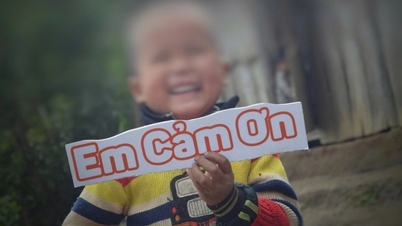





























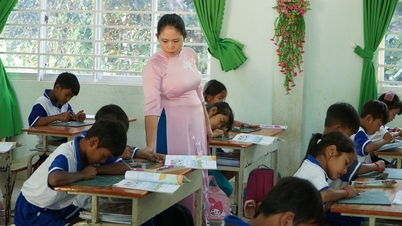

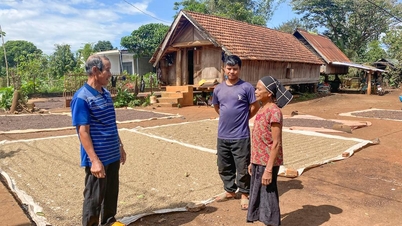














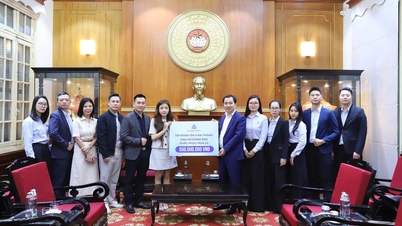













![[Photo] General Secretary To Lam works with the Standing Committees of the 14th Party Congress Subcommittees](https://vphoto.vietnam.vn/thumb/402x226/vietnam/resource/IMAGE/2025/12/09/1765265023554_image.jpeg)












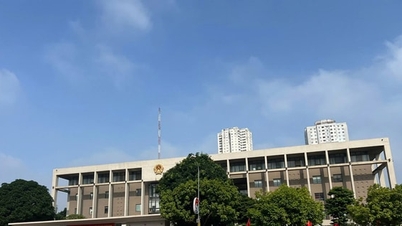




















Comment (0)